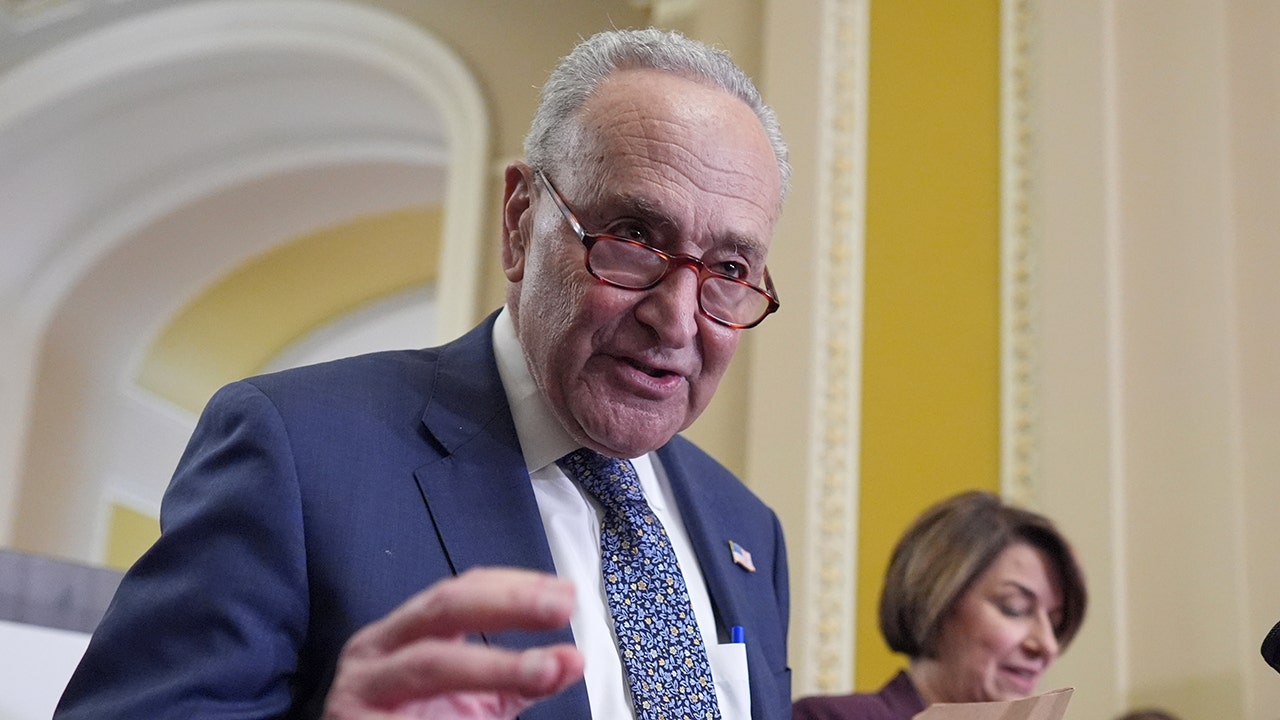Defense Secretary Pete Hegseth has announced that the Pentagon will no longer officially recognize designated “identity months,” stating that such observances detract from military unity and readiness.
SecDef Hegseth has officially cancelled Pride Month
Our military will only be celebrating heroes for their valor, not who they’re attracted to https://t.co/RW3jDX9WsM
— DC_Draino (@DC_Draino) February 1, 2025
Celebrate Trump’s Historic 2024 Victory with the Exclusive Trump 47th President Collection!
The decision, outlined in a guidance memo issued Friday, comes just ahead of Black History Month and marks a shift in the Department of Defense’s (DOD) approach to diversity-focused celebrations.
Hegseth’s directive states that the DOD will “not use official resources, to include man-hours, to host celebrations or events” related to identity months.
However, service members and civilian employees may still attend such observances in a personal capacity outside of duty hours.
The guidance specifically named several observances that will no longer receive official recognition within the Pentagon, including Black History Month (February), Women’s History Month (March), Asian American and Pacific Islander Heritage Month (May), and Hispanic Heritage Month (September 15 – October 15).
“Our unity and purpose are instrumental to meeting the Department’s warfighting mission. Efforts to divide the force — to put one group ahead of another — erode camaraderie and threaten mission execution,” the memo stated.
Instead of identity-based observances, the guidance encourages military installations, units, and offices to honor the achievements of service members “of all races, genders, and backgrounds” by focusing on their contributions to the military, rather than their demographic traits.
“Installations, units, and offices are encouraged to celebrate the valor and success of military heroes of all races, genders, and backgrounds as we restore our warrior culture and ethos.
We are proud of our warriors and their history, but we will focus on the character of their service instead of their immutable characteristics,” Hegseth’s directive stated.
U.S. Secretary of Defense Pete Hegseth announced yesterday that effective immediately, DoD Components and Military Departments will no longer use official resources, to include working hours, to celebrate Cultural Heritage Months, with servicemembers and civilians still permitted… pic.twitter.com/gMrXnDtXdD
— OSINTdefender (@sentdefender) February 1, 2025
The move aligns with broader efforts by the Trump administration to dismantle diversity, equity, and inclusion (DEI) initiatives across federal agencies, with the Pentagon being a central focus of these reforms.
Since taking office, Hegseth has prioritized removing DEI-related programs, citing concerns that such initiatives weaken military cohesion and distract from combat readiness.
The Pentagon’s announcement coincided with President Donald Trump’s official proclamation for Black History Month, in which he acknowledged the contributions of black American leaders throughout history.
“Throughout our history, black Americans have been among our country’s most consequential leaders, shaping the cultural and political destiny of our Nation in profound ways,” Trump’s statement read.
He highlighted figures such as Frederick Douglass, Harriet Tubman, Thomas Sowell, and Justice Clarence Thomas, calling them representatives of “what is best in America and her citizens.”
“Their achievements, which have monumentally advanced the tradition of equality under the law in our great country, continue to serve as an inspiration for all Americans,” Trump added.
Trump is so racist he just recognized Black History Month pic.twitter.com/2w77Lswd9u
— Eric Daugherty (@EricLDaugh) February 1, 2025
The decision to end identity-based observances reflects a broader shift in the Pentagon’s priorities under the Trump administration.
In contrast to previous policies that promoted identity-driven initiatives, the focus has now turned toward reinforcing a unified military culture centered on duty, honor, and mission readiness.
While the directive has drawn criticism from some who see it as a rollback of inclusion efforts, supporters argue that it aligns with the military’s core mission and ensures that resources are dedicated to operational effectiveness rather than social programs.
As the policy takes effect, military leaders will be expected to implement the new guidelines, emphasizing the contributions of all service members without segregating recognition based on identity categories.
The opinions expressed by contributors and/or content partners are their own and do not necessarily reflect the views of LifeZette. Contact us for guidelines on submitting your own commentary.
Read the full article here


![Pete Hegseth Makes Major Move Against Identity Politics at the Dept. of Defense [WATCH] Pete Hegseth Makes Major Move Against Identity Politics at the Dept. of Defense [WATCH]](https://www.rvmnews.com/wp-content/uploads/2025/02/2025.02.01-10.13-rvmnews-679e9c7557d15.jpg)




![Pelosi Fumes as Hegseth Renames Ship After Medal of Honor Hero [WATCH] Pelosi Fumes as Hegseth Renames Ship After Medal of Honor Hero [WATCH]](https://www.lifezette.com/wp-content/uploads/2024/08/2024.08.21-02.43-lifezette-66c5fd040410c.jpg)



![Iran’s Khamenei Claims Victory, Trump Threatens More Strikes, Calls Him a Liar [WATCH] Iran’s Khamenei Claims Victory, Trump Threatens More Strikes, Calls Him a Liar [WATCH]](https://www.lifezette.com/wp-content/uploads/2025/04/2025.04.18-08.15-lifezette-68020a33b4123.jpg)
